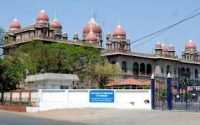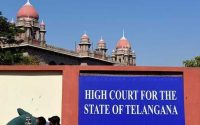$100 Website Offer
Get your personal website + domain for just $100.
Limited Time Offer!
Claim Your Website NowLabour court, not ex-judges, must settle RTC feud: Telangana government.
Source – newindianexpress.com
HYDERABAD: The state government has expressed its inability to accede to the proposal of the Telangana High Court to form a high-power committee, comprising three former Supreme Court judges, to resolve the dispute with the striking RTC employees.
The government urged the court to refer the matter to the labour court, saying it was the appropriate authority to decide on the matter as per Section 10 of the Industrial Disputes (ID) Act, 1947. In this regard, state advocate general BS Prasad filed an affidavit before the division bench of Chief Justice Raghvendra Singh Chauhan and Justice A Abhishek Reddy on Wednesday.
Represented by Chief Secretary SK Joshi, the government said the provisions of the ID Act do not envisage the constitution of a high-power committee of former SC judges or any other dignitaries to reconcile the parties or adjudicate an industrial dispute.
“The court orders on the proposed committee have been sincerely and seriously examined, and I sincerely express the inability of the government to accede to the orders requesting the government for constitution of a high-powered committee,” the chief secretary noted.
Amid suicides, High Court urged to rescue striking staff
The chief secretary, in the affidavit, urged the court to refer the matter to the appropriate authority — the labour commissioner — who, he said, is seized of the matter for taking further steps as provided under Section 10 of the ID Act without any further loss of time.
Senior counsel D Prakash Reddy, appearing for the trade unions, meanwhile, said that he would place case laws, as to whether the government’s consent is required for forming the proposed high-power committee, before the court. The bench then posted the matter to November 18 for further hearing.
During the hearing, Prasad told the court that the RTC has been re-constituted as per Section 3 of the Road Transportation Act, 1950, and was abiding by various provisions promulgated in the Andhra Pradesh Re-Organization Act, 2014. No Act can be placed on a higher pedestal than the 2014 Act, he said.
Reacting to the above submissions, the bench said the RTC Act was a special Act wherein the reconstitution of the RTC ought to have been in tune with Section 47(A) of the Act, and therefore all the powers are maintained by the Central government. Section 36 of the AP Reorganization Act does not grant absolute power to the State to reconstitute the RTC, and the State government ought to have obtained prior consent and approval from the Centre in creating the TSRTC, the bench noted.
Advocate Rapolu Bhaskar, appearing for one of the petitioners, urged the court to come to the rescue of the striking employees, saying that some of them have already committed suicide due to depression.
Additional advocate general J Ramachandra Rao, appearing for the RTC, also urged the court to refer the matter to the labour court for adjudication.
He cited Supreme Court judgments, saying the issues that fall within the domain of the labour court would be decided by the latter based on material and evidence placed before it as to whether the strike is legal or illegal and whether the demands put forth by the striking employees can be implemented or not. The court was dealing with a batch of petitions seeking to declare the ongoing RTC strike as well as the action of the official respondents in not considering the employees’ demands and thereby not resolving the issue in pursuance of the strike notice as equally arbitrary, illegal and unconstitutional.
Dealing with another PIL, the bench extended the earlier interim order till Thursday, wherein the court directed the State government and RTC authorities concerned not to take any steps that would precipitate the situation due to privatisation of 5,100 permits of the RTC in pursuance of a Cabinet decision. The court will hear the case on Thursday.
Will the case just be sat on, asks HC
If this court refers the present matter to the labour court, would it solve this contentious issue in a considerable period of time, or would it sit on it for a longer period, the bench asked advocate general (AG) BS Prasad after perusing the contents of the affidavit. In reply, the AG said the labour court would not take more time to solve the issue. He, however, sought time to get instructions on the issue by the next hearing



